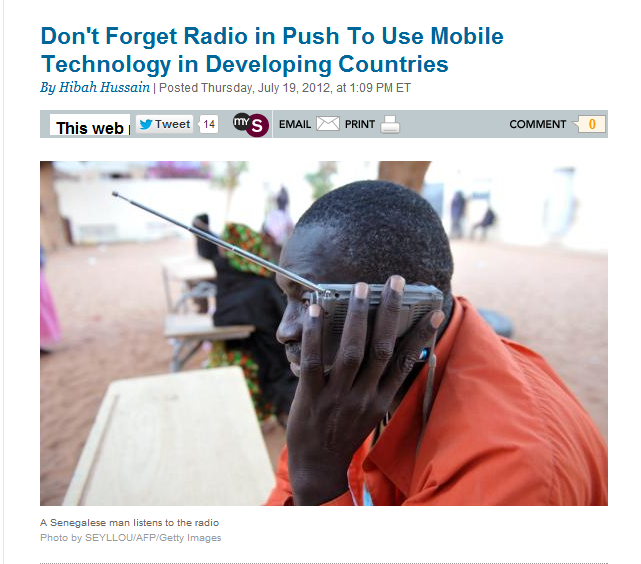So radio is important—but not perfect. Although community radio stations often involve local residents in programming and long-term planning, getting real-time feedback from listeners can be challenging. Voice calls are expensive, and stations have a limited time to take calls from their audiences. This is where mobile telephony and text messaging can be a game changer, transforming radio listeners into active participants.Another example: FrontlineSMS, an organization devoted to leveraging mobile phones for development. Unlike similar organizations, Frontline has devoted significant resources to radio initiatives. Frontline’s platform has been used by community radio stations like Radio Mudzi Wathu in Malawi, which uses Frontline SMS to solicit questions, comments, and ideas from listeners. During prime listening hours, Radio Mudzi asks its audience questions like “why do you think that HIV/AIDS is increasing despite interventions?” and asks them to text their responses. They then aggregate the responses, analyze them, and take them to local policymakers and aid workers.
In addition to facilitating audience participation, SMS-oriented radio initiatives allow for unprecedented levels of audience research. After receiving feedback on any given issue, stations have a repository of information that they can analyze and look back on in order to better serve needs of audience. As they identify trends, needs, and concerns, radio stations can catalyze a profoundly fruitful cycle, using more relevant programming to drive audience engagement, thereby soliciting more feedback and dialogue.So how can we encourage more hybrid radio/mobile projects? First of all, we need to adjust the way we approach technology intended for the developing world. When designing, funding, researching, or discussing technology for development projects, we need to stop being fixated on one technology or platform and instead consider how new technology can be integrated with existing needs, values, and networks.
Slate.com features FrontlineSMS usage for a Radio station in Malawi
On 19th July 2012 Slate featured how FrontlineSMS was used by a Radio station in Malawi in a great article stressing the importance of radio as an accessible, locally appropriate technology in developing countries. Thanks Slate! Watch this space for the launch of FrontlineSMS: Radio, a version of our award-winning platform designed for use by radio stations, coming soon ...

